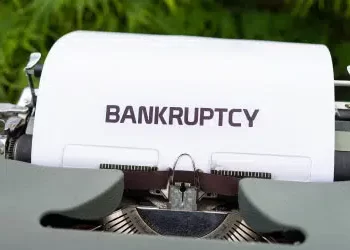Have you ever wondered how to get away with the company’s overcapitalization?
Well, we know you would want to hear more about this but let’s first conceptualize overcapitalization. According to Bonneville, Dewey and Kelly, “When a business is unable to earn a fair rate of return on its outstanding securities, it is over-capitalized.”
Now, overcapitalization occurs when a company has more debts than its assets are worth. To make it simple, it is a situation where a company has more debt and equity compared to the value of its assets. A company which is overcapitalized may have to pay high interest and dividend payments that will eat up its profits. The heavy debt burden and associated interest payments might be a strain on profits and reduce the amount of retained funds the company has to invest in research and development or other projects.
This is not sustainable over the long haul. To escape the situation, the company may need to reduce its debt load or reduce its share capital or buy back shares to reduce the company’s dividend payments or even to file for bankruptcy in the worst-case scenario. Restructuring the company’s capital is a solution to this problem.
Our interest is on how reduction of share capital can help to get away with overcapitalization. Reduction of share capital entail the reduction of issued, subscribed and paid-up capital of the Company, mainly done by companies for producing a more efficient capital structure. The Companies Act under Section 69 allows a company limited by shares or a company limited by guarantee and having a share capital to reduce its share capital, if so, authorized by its articles. The process involves passing special resolution to reduce its share capital by: –
- Extinguishing or reducing the liability on any of its shares in respect of share capital not paid up; or
- Either with or without extinguishing or reducing liability on any of its shares, cancel any paid-up share capital which is lost or unrepresented by available assets; or
- Either with or without extinguishing or reducing liability on any of its shares, pay off any paid-up share capital which is in excess of the requirements of the company
Reduction of share capital is allowed but the directors must certify that they have made a full inquiry into the affairs of the company, and that, having so done, they have formed the opinion that the company will be able to pay its debts in full within twelve months from the date of the certificate or, if the company is wound up within that period, the date of the commencement of the winding up.
In sum, reorganization of share capital either by reducing par value of over-capitalization provided the management shares or by reducing number of outstanding shares is the only panacea to the problem of succeeds to convince the shareholders about the utility of this step.
Curious to learn more?
The future of corporate dynamics is about to be unlocked-don’t miss your chance to be part of it and place your order now via the link below;
https://docs.google.com/forms/d/e/1FAIpQLSdZAUJCfwLttA6CiP6BDiFT0kelUcJGcRjtoyPiOdKTsA6yJg/viewform?usp=sf_link
or send an email via;
publications@vps124669.inmotionhosting.com
ABOUT US
Victory Attorneys & Consultants is a legal powerhouse dedicated to providing services of utmost quality to a diverse clientele across all sectors. The firm is at the forefront of legal innovation in Tanzania, being the first law firm to specialize in data protection, information privacy, cybersecurity and Artificial Intelligence (AI). We are prominent for our expertise in game-changing legislative advocacy, advisory services, compliance, impact assessments, and audits in the realm of data protection and cyber.



